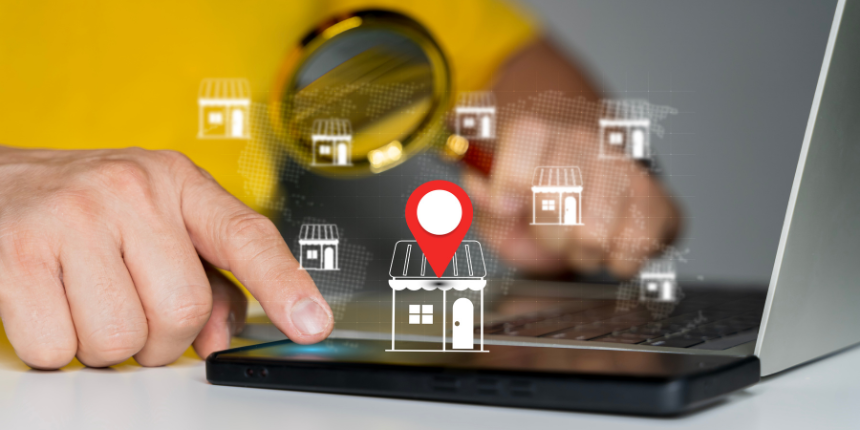
Maximize your local presence through strategic location management.

The importance of local SEO cannot be overlooked. With the rise of mobile use and Google’s increasingly sophisticated understanding of user intent, ranking locally has become the best way to increase footfall into local businesses.
Rather than focus on the Local Pack (which is the map/geographic-focused results often appearing at the top of the SERPs this post will focus on rankings for locationally-focused content and landing pages in the natural results. The most important signals can be seen below.
Research by Moz

Overview
As with all search ranking factors, links are still the major signal used to determine relevance to a particular query. They act as endorsements – so the better the endorser, the higher the value of your page. Google uses links in several ways. The main factors are:
Recommendations:
This is one of the harder areas to control, as to get links naturally and effectively, they should be earned/won rather than bought or requested. This simply requires putting out content that is more useful and engaging than that of your competitors, is visually pleasing and easy to use and, ideally, as unique as possible.
There are a number of tricks and techniques to boosting your chances of getting some links that are locally and topically relevant. Here are just several:
No matter how good your linking signals are, if Google can’t determine the topic or location of your page, you will not be shown for relevant locational queries.
In this context, on-page signals means the content on your page and how rankable it is. Does it relate to the search queries you want? Does it contain the information relevant to that query?
This ranges from including the basics like name, address and contact details (telephone number, email address), to ensuring you have a decent keyword density on the page. This includes frequency of locational terms as well as industry terms.
For example, if you were a gym (where x is the location), you may want to include the terms ‘x gym,’ and ‘gym in x’ a few times. Synonyms and secondary keywords should also be used, not only to prevent it from becoming monotonous and repetitive spammy robot-speak, but to fire up Google’s latent semantic indexing capacities and to help you rank for those terms.
For a fitness club in Colchester, for instance, here are some phrases you might want to consider:
‘Gym in Colchester’
‘Colchester health and fitness club’
‘Colchester gym’
‘Fitness Classes in Colchester,’
‘Health Club’
David Lloyd’s local club pages are handling this well:

It isn’t just density which is important – keyword placement is perhaps even more significant.
Like in our example above, make sure you include your primary keywords in your metadata, headers and secondary headers; drop a scattering of synonyms through your main copy, always making sure it reads well for humans.
By this we mean how users are interacting with your page. Are they finding what they are looking for and are they staying on your content for a decent amount of time? Did they engage with many elements on the page? Did they bounce?
There are three questions to keep in mind here:
Firstly, are people going to select your page over the competition? Make sure you stand out in SERPs with engaging and descriptive metadata and, where possible, snippets. This consideration is mainly to improve click through rate. If your result gets no clicks, Google will favour results that do.
Subscribe to our monthly newsletter.
Secondly, does the page serve the user’s intent? Ask yourself, what exactly are they looking for if they end up on this page? Are they looking to book something? Information? Download something? Does this page contain everything it needs? This consideration is mainly to lower bounce rate. If the majority of users head straight back to the SERPs, your rankings will soon suffer.
Thirdly, can you include supplementary content or elements to keep people interested and engaging with the page to help the average behavioural metrics? A video, a map, an interactive timetable (if you were a gym, say) or a graphic? This will help pull up average time on site. If all the people who click through spend a decent amount of time on this page, Google will assume you are relevant, useful and provide a good experience, and will rank you accordingly.
Now this is another factor that is outside your control. As Google becomes more and more sophisticated and better at machine learning, it is tailoring the results it provides to users on an individual level. For example, if your search history is SEO and IT heavy and you perform a search for ‘python,’ it will assume you are intending to find out about the coding language rather than the giant snake.
There are quite a number of things Google will take into account here, and they are all user-focused:
To give you the best chance of scoring well in this area, make sure your locational information is accurate (including in My Business), and get your brand and content out far and wide to secure as much interaction as possible across the whole web and social networks.
This is essentially when your local business, or locational information referring to it, is mentioned online. This could include your address, phone number, business name, even photos, videos and business email addresses are thought to contribute. Google will assume businesses with a lot of mentions online are popular and useful.
The third-party sites you should be seeking out to fulfill this criterion tend to revolve around reviews or directories.
Using your business listings management tool, get your local listings actively managed on:
Google My Business (first and foremost; more on this later)
As well as actively building out your breadth of citations through outreach and content placements, ensure that your address and business descriptions are consistent across all owned media and your own properties (website, blog, subdomains, social accounts, meta data etc.)

Anytime a customer or associate leaves an opinion online regarding your business, this can affect rankings and user signals. Search engines will use quantity and quality of rankings to assess your relevance to a locational query. Essentially, aim for as many positive rankings as you can.
The main sites associated with reviews are Google, Facebook and Yelp. These are the main three to focus upon, however, there are a number of other smaller sites to be aware of.
First and foremost you need to ensure you are doing everything to be perceived as pleasant and engaging. This thought process should consider everything from the attitudes of staff, to general ambience and decor. Is your location the kind of place that customers want to tell their friends about?
Again, because these are not controlled directly by you, this isn’t the easiest area to game; however, there are various measures you can take to optimise your chances:
Following these steps will be a good start to getting your local landing pages and geographically-focused content to rank well. However, here at DAC, we have been in the local space for 40+ years and are experts in the field. Please do get in touch if you need further information or have questions.
Maximize your local presence through strategic location management.
Maximize your local presence through strategic location management.
Subscribe to our monthly newsletter.